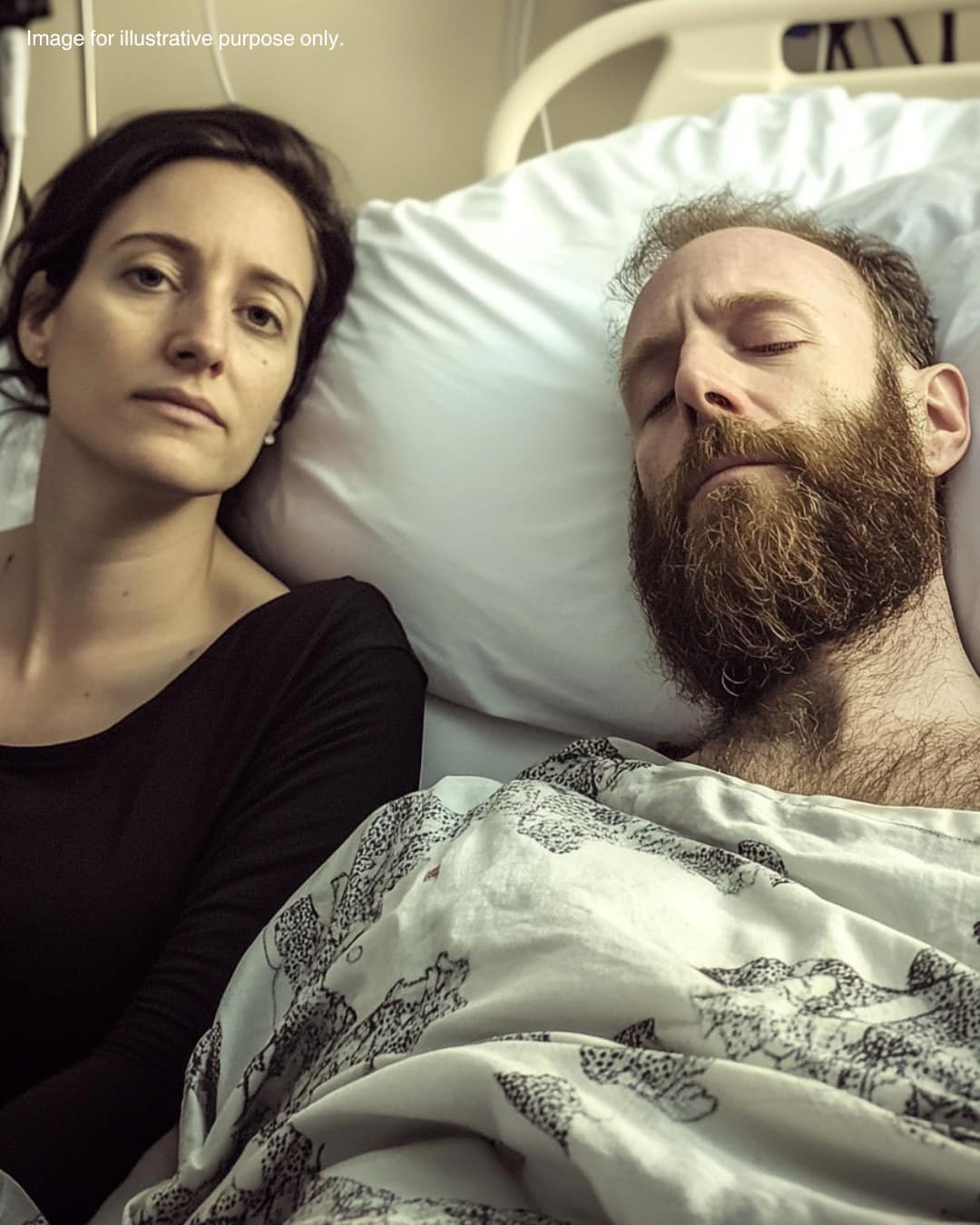Diana sat frozen in the sterile hospital corridor, the doctor’s words still echoing in her mind: “Stage four canc3r… metastasized… only a few weeks left.” Her husband of fifteen years, Eric, was dy:ing. The love of her life, her partner through all of life’s twists and turns, was slipping away.
Struggling for air, she stumbled out into the brisk September evening. She collapsed onto a bench outside the hospital, clutching her stomach as though trying to contain the pain threatening to rip her apart. Around her, life went on—families laughed, cried, and moved forward. Diana felt trapped in limbo.
That’s when she noticed the nurse.
The woman, unremarkable at first glance, approached silently, her tired eyes betraying a weariness born of years spent in the shadows of others’ suffering.
“Set up a hidden camera in his ward,” she said
“He’s not dying.”
The words struck like a thunderclap.
“Excuse me? My husband is dy:ing. The doctors—”
The nurse didn’t flinch. “Seeing is believing,” she interrupted. “I work nights. I see things that don’t add up. Trust me, you deserve to know the truth.”
What did she mean, “He’s not dy:ing”? The thought was absurd, cruel even, but the seed of doubt had been planted. By the next morning, that seed had grown into resolve. Against her better judgment, Diana ordered a small, discreet camera.
The next day, while Eric was undergoing a scan, Diana slipped into his hospital room. Her hands trembled as she nestled the tiny camera among the fresh flowers on the windowsill.
When Eric returned, his pale face and feeble movements painted a heartbreaking picture.
He winced as he lay back in bed, gripping Diana’s hand weakly. “The pain… it’s worse today,” he murmured.
At first, nothing seemed unusual. Nurses came and went, checking Eric’s vitals. Eric slept fitfully, shifting under the white hospital sheets. But then, at precisely 9 p.m., everything changed. The door opened, and a tall woman in a sleek leather coat walked in.
Eric’s transformation was immediate. He sat up, strong and alert, his pale façade replaced by a vitality that didn’t belong to a dy:ing man. The woman leaned in, and they embraced with an intimacy that made Diana’s stomach turn.
The camera had no audio, but their body language spoke volumes. The woman handed Eric a folder, which he tucked under his mattress. Their expressions were smug, conspiratorial. Diana’s hands shook as she stopped the feed. Tears streamed down her face, but they were no longer tears of grief—they were tears of betrayal.
The next day, Eric, back in character, winced dramatically as he sipped water. “Rough night,” he rasped. “The pain’s unbearable.”
Diana forced a smile. “I’m so sorry, love. Rest. I’ll take care of everything.”
But that night, she didn’t go home. Instead, she waited in her car, watching the hospital entrance like a hawk. Sure enough, the woman in the leather coat arrived, striding confidently into the building.
Eric and the woman, Victoria, were plotting to fake his d3ath, collect the insurance money, and vanish together.
“Diana won’t suspect a thing,” Eric said with a laugh. “She’s already planning my funeral.”
The casual cruelty of his words shattered something inside Diana, but it also ignited a fire. She would not be their fool.
The next day, Diana called everyone—Eric’s family, friends, and coworkers. “Eric’s condition has worsened,” she said, her voice trembling just enough to sound convincing. “The doctors say it’s time to say goodbye.”
“Before we say our final goodbyes,” she announced.
“there’s something you all need to see.”
The room fell silent as the footage played on the large screen.
“How could you do this to your wife? To us?” she screamed.
Eric stammered, his face pale—not from illness, but from fear. When security arrived with the police, Diana stood back and watched as Eric and Victoria were led away in handcuffs.
The next morning, Diana filed for divorce. She returned to the hospital bench, hoping to see the nurse who had saved her from a lifetime of lies. When the woman appeared, her tired eyes now held a hint of warmth.
“Thank you,” Diana said simply.
The nurse nodded. “Sometimes, the worst diseases aren’t in the body—they’re in the soul. I’m glad you found the cure.”

Leave a Reply